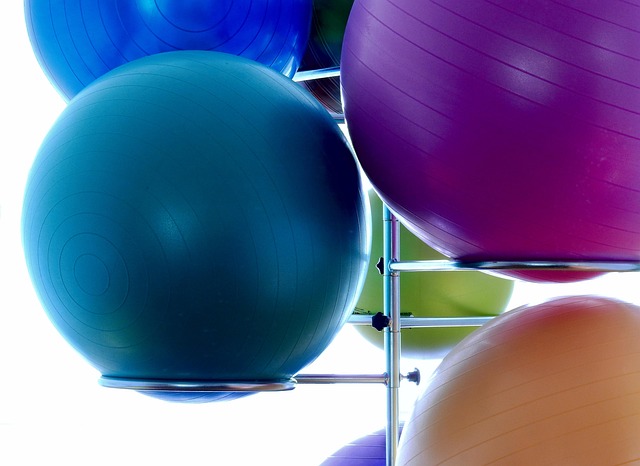Cold water immersion, or a cold plunge, is an ancient practice gaining popularity as a modern natural stress recovery method. Submerging oneself in cold water triggers physiological responses that flush out stress hormones and release endorphins, promoting enhanced relaxation and mental resilience. Incorporating brief, controlled cold plunges into your routine can significantly aid recovery from stressful situations, improve blood circulation, boost anti-inflammatory response, and foster overall well-being, emphasizing its role in achieving relaxation. Always prioritize safety by maintaining proper water temperatures, gradually increasing immersion duration, choosing safe locations, preparing mentally and physically, and drying off properly post-plunge to maximize the benefits of cold water immersion for relaxation.
“Unwind and rejuvenate with nature’s own therapy—cold water immersions. This ancient practice is gaining modern popularity as a natural way to support stress recovery. From athletes to everyday individuals, ‘cold plunges’ are transforming self-care routines.
In this comprehensive guide, we explore the science behind cold water immersion, its numerous benefits, and practical tips for safe practices. Discover how stepping into chilly waters can be a game-changer in managing stress and enhancing overall well-being.”
Understanding Cold Water Immersion: A Natural Stress Reliever
Cold water immersion, also known as a cold plunge, is an ancient practice that has gained modern popularity as a natural way to support stress recovery. This involves submerging oneself in cold water, typically from a lake, river, or even a special cold shower, for a short period. The sudden exposure to cold triggers a series of physiological responses in the body.
When you jump into cold water, your blood vessels constrict, reducing blood flow to your extremities and core. This leads to a rapid increase in heart rate as the body tries to maintain its internal temperature. After a few minutes, however, the body adjusts, and blood vessels dilate again, promoting increased circulation. This process helps flush out stress hormones and promotes the release of endorphins, often referred to as “feel-good” chemicals, which can significantly enhance relaxation and overall well-being. Many people find that cold water immersion provides a profound sense of calm and clarity, making it an effective tool for managing stress and promoting mental resilience.
The Science Behind Cold Plunges and Their Effects on the Body
Cold water immersion, a practice that involves briefly exposing yourself to cold temperatures, has gained popularity as an alternative method for stress recovery. The science behind this technique reveals its profound effects on the body and mind. When you immerse yourself in cold water, whether it’s a quick plunge or a controlled breathing session, your nervous system responds by triggering a range of physiological changes. One key response is the release of endorphins, often referred to as ‘feel-good’ hormones, which can reduce stress and create a sense of relaxation.
Additionally, cold water immersion challenges your body’s thermoregulatory system, causing blood vessels to constrict and slow down circulation in certain areas, while promoting faster flow to essential organs. This process is believed to enhance recovery after physical exertion and reduce inflammation. For those seeking natural ways to unwind and rejuvenate, cold plunges offer a simple yet powerful tool for achieving relaxation and supporting overall well-being.
Benefits of Incorporating Cold Water Immersions into Your Routine
Incorporating cold water immersions into your routine can significantly enhance your ability to recover from stressful situations. Cold plunges, such as diving into an ice-cold lake or taking a quick shower with freezing water, stimulate your sympathetic nervous system, temporarily pausing its stress response. This triggers the release of endorphins, often referred to as ‘feel-good’ hormones, which can alleviate tension and promote a sense of calm.
Additionally, cold water immersions improve blood circulation by constricting and then dilating blood vessels. This process helps flush out metabolic waste products from stressed muscles while increasing oxygen delivery, leading to faster recovery times. Regular cold water exposure can also boost your body’s natural anti-inflammatory response, which is beneficial for managing the physical and mental effects of chronic stress.
Tips for Safe and Effective Cold Plunging Practices
When incorporating cold plunges into your stress recovery routine, safety and effectiveness should be your top priorities. Always ensure the water temperature is below 59°F (15°C) to avoid shock to your system. Start with brief immersions of around 30 seconds, gradually increasing duration as you build tolerance. Choose a location where you feel comfortable and safe, away from dangerous surfaces or currents.
Before plunging, prepare mentally and physically. Take a few deep breaths to center yourself, and stretch gently to loosen muscles. After the plunge, dry off properly to prevent skin irritation and maintain body temperature. Engage in light activities like walking or yoga for a few minutes to help your body transition back to its normal state, enhancing the relaxation benefits of cold water immersion for stress recovery.
Cold water immersion has emerged as a powerful, natural way to support stress recovery. By understanding the science behind its effects on the body and incorporating this practice into your routine, you can experience profound relaxation and improved well-being. Remember that when practiced safely and effectively, cold plunges can be a game-changer in managing stress and enhancing overall health. So, take a dive into this ancient yet modern technique to unlock a calmer, more resilient you.
